"Streets of broken lanterns" — 20 years: how the legendary series was created
Categories: Cinema
By Pictolic https://pictolic.com/article/streets-of-broken-lanterns-20-years-how-the-legendary-series-was-created.htmlEveryone knows about the series "Streets of Broken Lanterns" — this is such a Russian "Santa Barbara", an example of a popularly beloved epic and a truly culturally significant event in the world of the domestic film industry. "Cops" (video version title) without pathos, they told stories from life, truthfully and accurately — and that's why they loved and watched the series.
At the beginning of 2018, "Streets of Broken Lanterns", officially recognized as the longest Russian TV project, celebrated its 20th anniversary. Let's remember how this cult series was filmed.
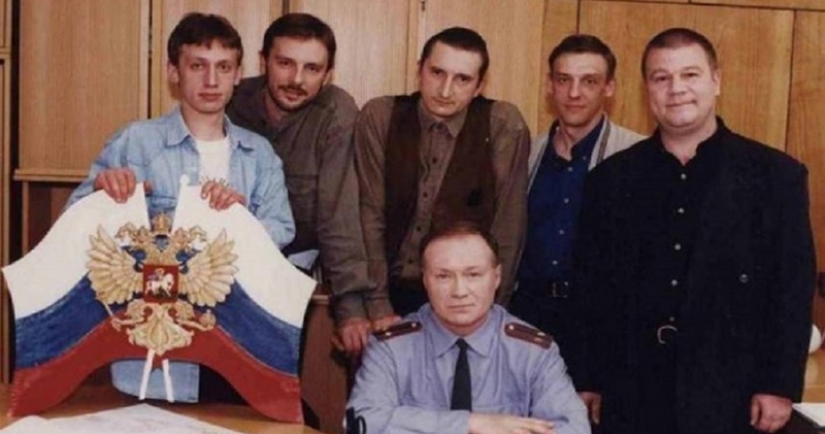
Source: Cinema House
These titles of the series are recognizable in our country by millions of people. Over the course of 16 seasons, directors, screenwriters and actors have changed, but the love of the audience for the heroes of the series has always remained unchanged.
The introductory video to the TV series "Streets of broken lanterns" in 1998
The first series of "Streets of Broken Lanterns" was shown on TNT on January 4, 1998. Then the first season bought the ORT channel and put the series on the air in prime time from the beginning of October 1998. Ratings went through the roof.
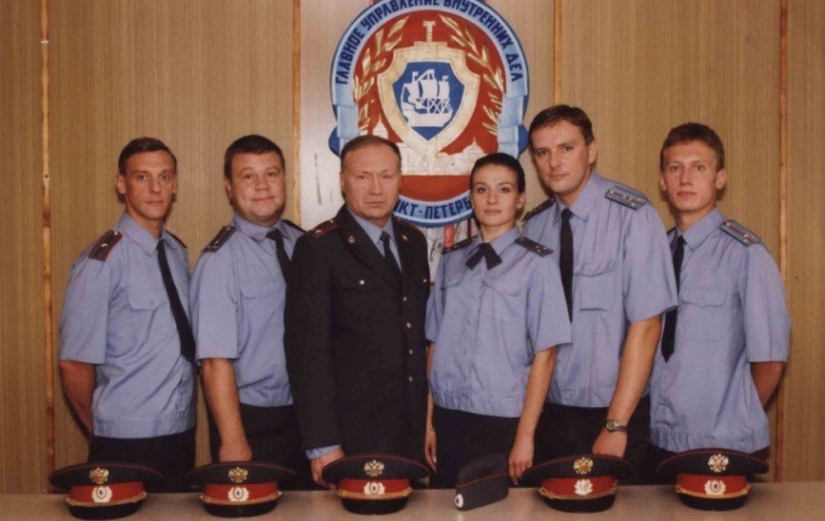
The series tells about the working days of the 85th St. Petersburg police department. The main characters, ordinary "detectives" Casanova, Larin, Dukalis and Volkov restore order in the difficult nineties. They are not at all like those ideal policemen who were shown in Soviet films. These are simple guys, dressed modestly, travel around the city on public transport and conduct their investigations in shabby offices, often using illegal methods in their work — in a word, cops.
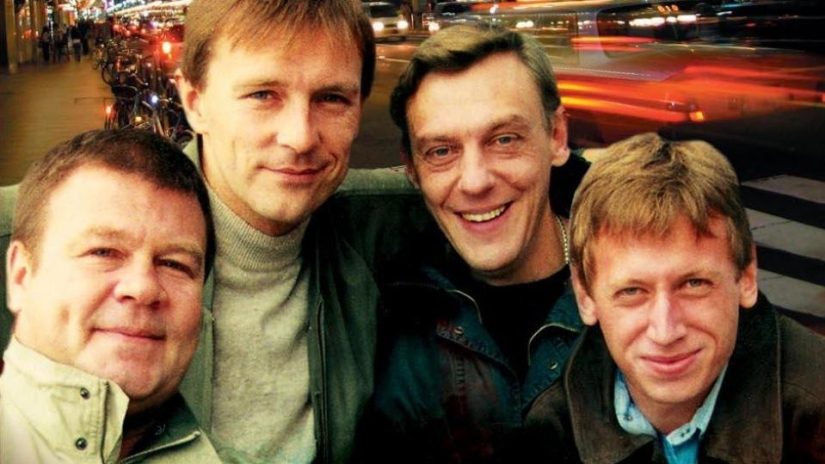
And although the television premiere of "Streets of Broken Lanterns" took place in 1998, the first "classic" eight episodes were filmed as early as 1995. Then the producer Alexander Kapitsa got into the hands of a book by the St. Petersburg writer Andrey Kivinov, whose sketches from the life of operas formed the basis of the script of the first series. Under the pseudonym of Kivinov, Andrei Pimenov, the captain of the homicide department of the Kirov police department of St. Petersburg, was hiding - one of the pioneers of the genre of ironic detective in Russia.
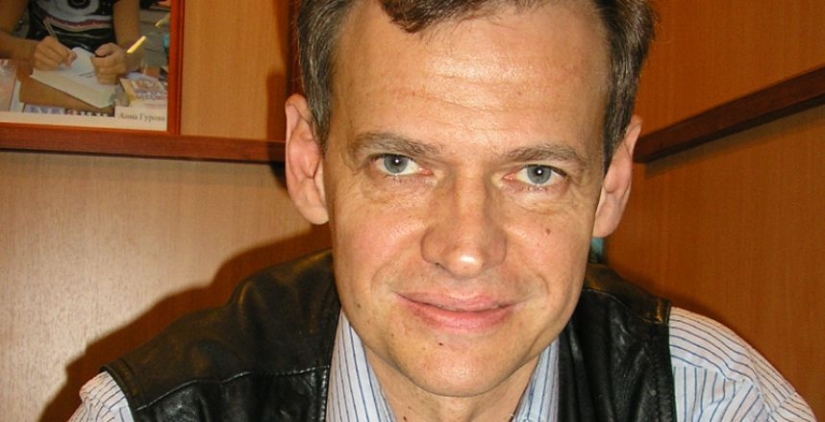
Writer and playwright Andrey Kivinov
Once he failed the exams for the Faculty of Literature, but the passion for writing remained. Working days were constantly throwing up plots, and in his spare time Pimenov wrote his first novel "A Nightmare on the Street of Strikes". A journalist friend read the story, said that his "Ilf and Petrov" appeared in the ranks of the police, and took the story to the publishing house. So the operative Andrey Pimenov became the writer and playwright Andrey Kivinov.
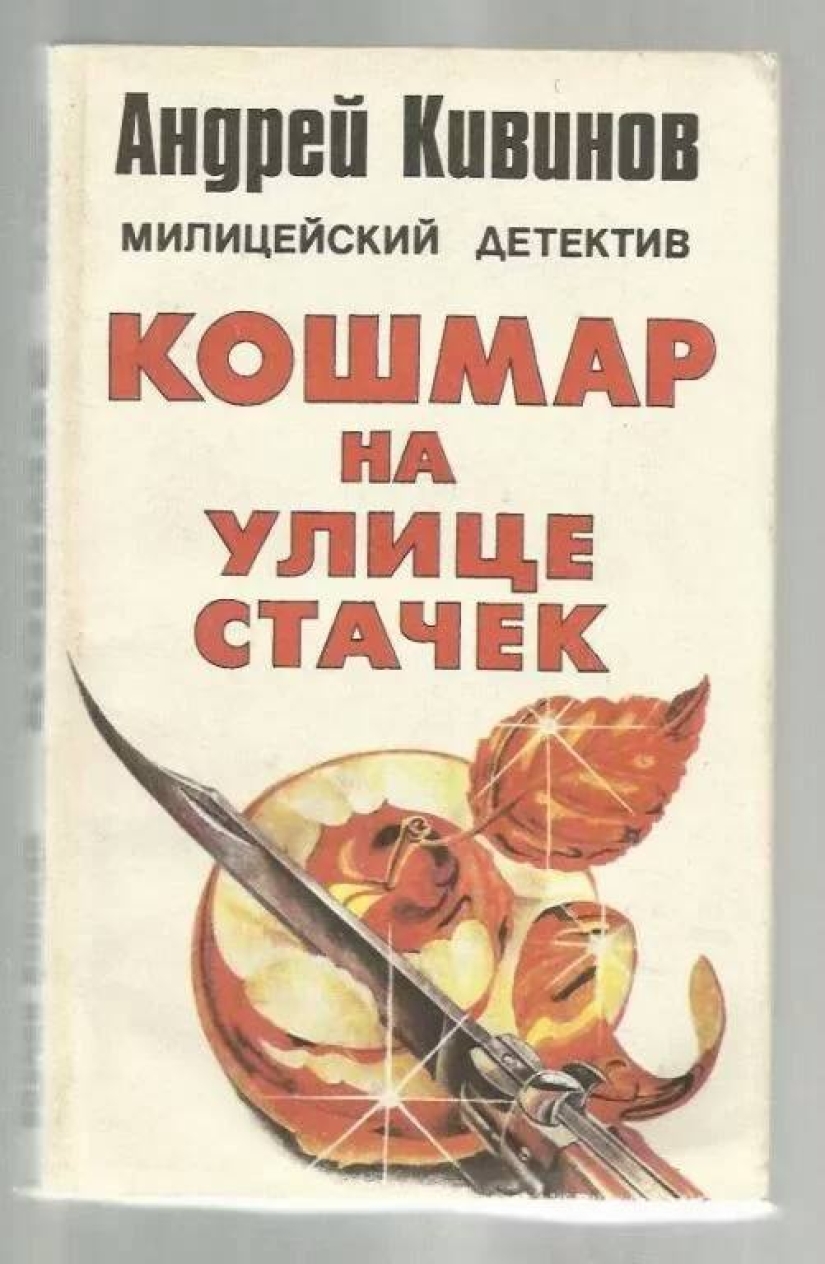
The first book by Kivinov, which formed the basis of the cult series
"A nightmare on the street of Strikes" got to the director of "Peculiarities of the National hunt" Alexander Rogozhkin, and he decided to contact the author and try to make a series about police everyday life. The series was first called "Cops", but in the process it seemed too straightforward, and the series came out as "Streets of Broken Lanterns".
The pilot series were filmed with naked enthusiasm: the actors were out of work, so they worked tirelessly. Director Alexander Rogozhkin brought Alexander Lykov (Casanova) and Sergey Selin (Dukalis). Alexey Nilov (Larin) left the chair of the head of the advertising department for the sake of filming, and Mikhail Trukhin (Volkov) came to the audition with a guitar, "sang a couple of thug songs and was approved for the role of a policeman."
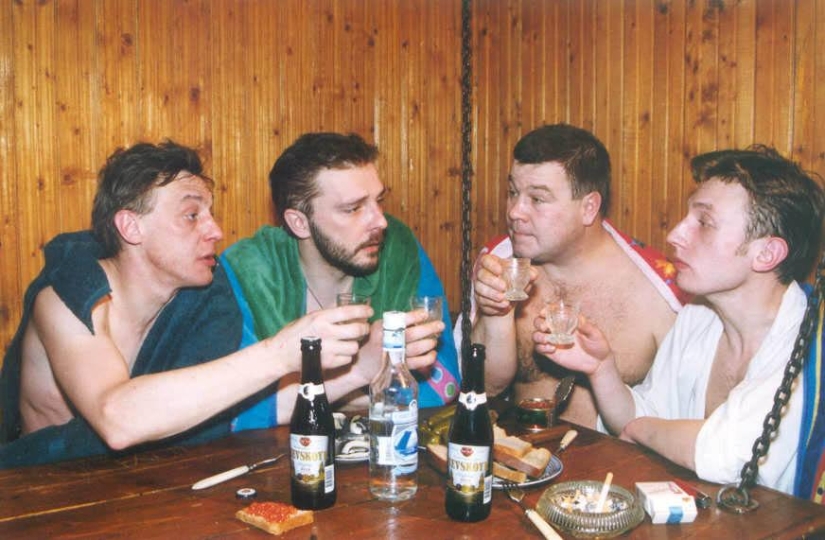
Unknown to anyone at that time, the actors were themselves in the frame, "their own in the board", skinny and hungry against the background of nascent capitalism. They filmed, as they say, cheaply and angrily in "interiors" — in a real stronghold on shabby sofas in their clothes.
The images were colorful and memorable.
 Strong and muzzled, like Winnie-the-Pooh, a veteran of the Riga riot police Dukalis, who keeps repeating: "And here in Riga ..." is a favorite of all Russian mothers—in-law. The prototype of Lieutenant Dukalis was an employee of the police department Anatoly Dukul. He retired with the rank of lieutenant colonel of the militia and became a municipal deputy.
Strong and muzzled, like Winnie-the-Pooh, a veteran of the Riga riot police Dukalis, who keeps repeating: "And here in Riga ..." is a favorite of all Russian mothers—in-law. The prototype of Lieutenant Dukalis was an employee of the police department Anatoly Dukul. He retired with the rank of lieutenant colonel of the militia and became a municipal deputy.
 A mannered erotomaniac of the criminal investigation department and a storehouse of funny stories of Kazan residents, who uses his official position to satisfy the needs of the flesh. Two people, Vladimir Malinin and Alexey Filippov, became his prototypes at once. Both of them were the first heroes-lovers and the most desperate guys of the Kirov police department. Vladimir Malinin is a retired Interior Ministry officer and works as a security consultant. Alexey Filippov died in 2003 at the age of 36.
A mannered erotomaniac of the criminal investigation department and a storehouse of funny stories of Kazan residents, who uses his official position to satisfy the needs of the flesh. Two people, Vladimir Malinin and Alexey Filippov, became his prototypes at once. Both of them were the first heroes-lovers and the most desperate guys of the Kirov police department. Vladimir Malinin is a retired Interior Ministry officer and works as a security consultant. Alexey Filippov died in 2003 at the age of 36.
 Captain Larin was written off from Kivinov himself. Many of the events that happened to the captain were taken from the author's life.
Captain Larin was written off from Kivinov himself. Many of the events that happened to the captain were taken from the author's life.
 Major Solovets, a typical career bureaucrat, concerned about disclosure and reporting. The prototype of the major, who stayed in the series the longest of all the heroes, was the head of the criminal investigation department, Lieutenant Colonel Oleg Dudintsev. After retiring, Dudintsev became a writer and producer.
Major Solovets, a typical career bureaucrat, concerned about disclosure and reporting. The prototype of the major, who stayed in the series the longest of all the heroes, was the head of the criminal investigation department, Lieutenant Colonel Oleg Dudintsev. After retiring, Dudintsev became a writer and producer.
 The eternally "green" son of the regiment, Lieutenant Volkov, who endures verbal banter from senior colleagues. The youngest opera of the "Streets" was actually the most senior operative. Vyacheslav Basnev was involved in juvenile crimes and was absolutely not like a serial hero. In retirement, Basnev worked at customs, and then became an official.
The eternally "green" son of the regiment, Lieutenant Volkov, who endures verbal banter from senior colleagues. The youngest opera of the "Streets" was actually the most senior operative. Vyacheslav Basnev was involved in juvenile crimes and was absolutely not like a serial hero. In retirement, Basnev worked at customs, and then became an official.
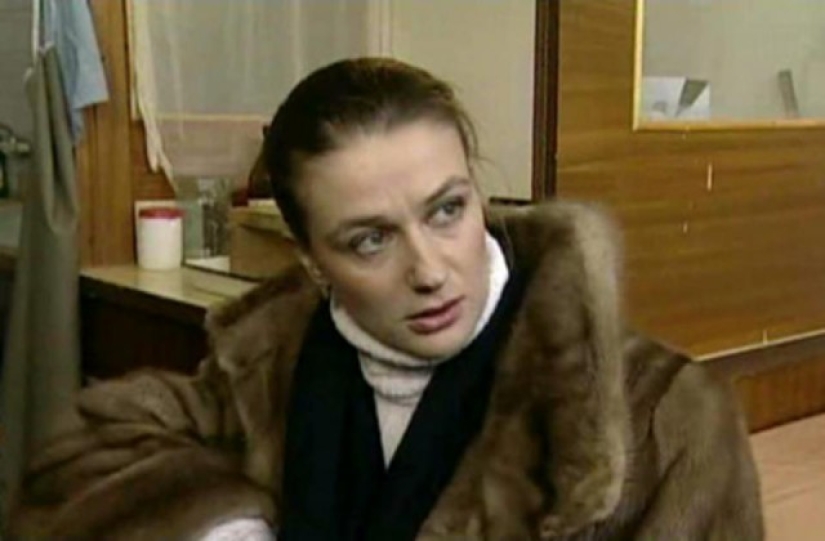 Lieutenant Nastya Abdulova was not in the script — there was an opera trainee Sasha Abdulov, who appeared in one episode. He was turned into Nastya already in the course of work — actress Anastasia Melnikova persuaded her friend, the artist of the series, to recommend her for at least some role. The director thought about it and entered a determined girl into the male company.
Lieutenant Nastya Abdulova was not in the script — there was an opera trainee Sasha Abdulov, who appeared in one episode. He was turned into Nastya already in the course of work — actress Anastasia Melnikova persuaded her friend, the artist of the series, to recommend her for at least some role. The director thought about it and entered a determined girl into the male company.
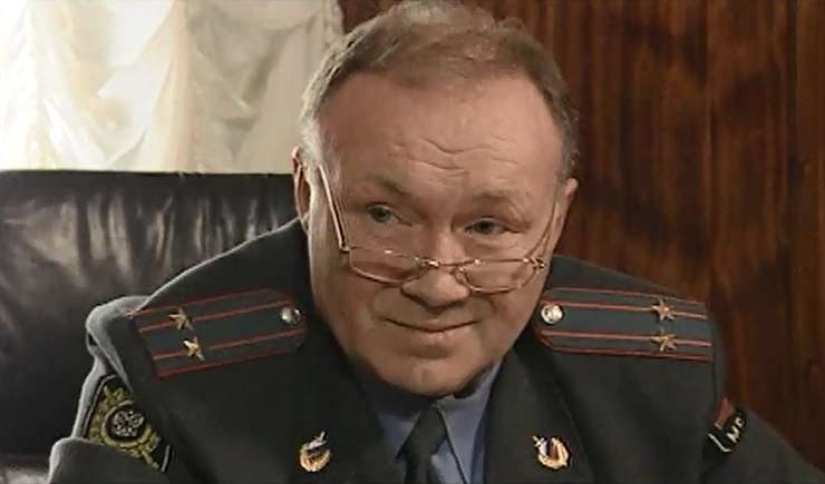 Also, there were no prototypes for the Fly Agaric and the lieutenant of Gunpowder and Captain Dymov who appeared in the series much later.
Also, there were no prototypes for the Fly Agaric and the lieutenant of Gunpowder and Captain Dymov who appeared in the series much later.
"Streets of Broken Lanterns" stirred the soul with its authentic atmosphere and lively types, but when Kivinov left the project, the series immediately lost its realism and individuality, and the creators began to fight for ratings without attracting more consultants in uniform. The vivacity of the characters left, the cops began to climb under the bullets, as if they were wearing an invisible bulletproof vest, the scripts dimmed, the humor was gone.
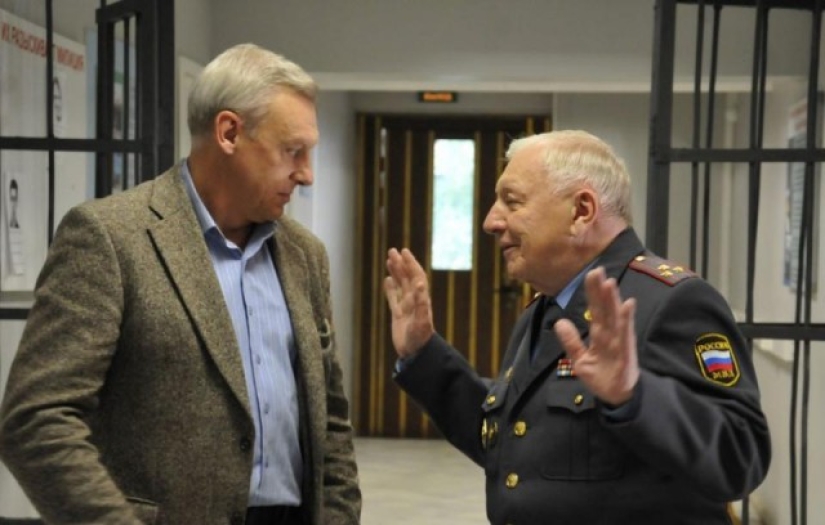 A year after the premiere, the brightest hero, Casanova, left the series. Alexander Lykov realized that he had become famous, but not an actor, but a "cop", and risked becoming a hostage of the role. The entire film crew took offense at Lykov, but they did not "bury" the hero — they hoped for a return. A few years later, the "funeral" still took place - Sergey Selin and Alexey Nilov left the project, respectively, Dukalis and Larin died heroically on a mission.
A year after the premiere, the brightest hero, Casanova, left the series. Alexander Lykov realized that he had become famous, but not an actor, but a "cop", and risked becoming a hostage of the role. The entire film crew took offense at Lykov, but they did not "bury" the hero — they hoped for a return. A few years later, the "funeral" still took place - Sergey Selin and Alexey Nilov left the project, respectively, Dukalis and Larin died heroically on a mission.
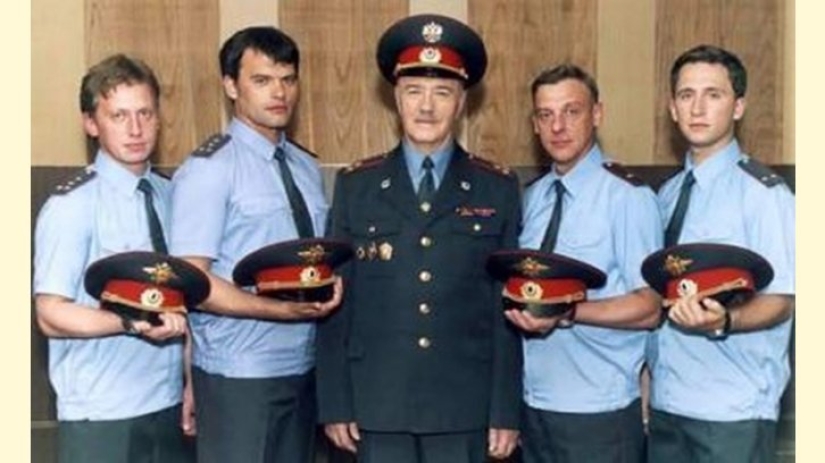 During its long history, "Streets of Broken Lanterns" has received awards from the internal affairs bodies of Russia many times, including the awards of the Ministry of Internal Affairs and the Association of Lawyers and Lawyers of Russia, as well as the awards of the Academy of Russian Television "TEFI" in the nominations "Best Project of the Year" and "Best Art Production Group". Screenwriter Andrey Kivinov got into the Book of Records of St. Petersburg as the creator of the literary basis of the longest series in the history of domestic television.
During its long history, "Streets of Broken Lanterns" has received awards from the internal affairs bodies of Russia many times, including the awards of the Ministry of Internal Affairs and the Association of Lawyers and Lawyers of Russia, as well as the awards of the Academy of Russian Television "TEFI" in the nominations "Best Project of the Year" and "Best Art Production Group". Screenwriter Andrey Kivinov got into the Book of Records of St. Petersburg as the creator of the literary basis of the longest series in the history of domestic television.
Recent articles

It's high time to admit that this whole hipster idea has gone too far. The concept has become so popular that even restaurants have ...

There is a perception that people only use 10% of their brain potential. But the heroes of our review, apparently, found a way to ...
Related articles

There are people who all his life selflessly and work hard, but never have time to enjoy financial independence. And there are ...

For sure, you have not only worked on self-isolation, but also watched movies and TV series – you just had free minutes and had ...

Not everyone likes to wait for two years for the release of new series, as it was with "Game of Thrones", and literally live their ...

New Year's is a time to surprise and delight loved ones not only with gifts but also with a unique presentation of the holiday ...